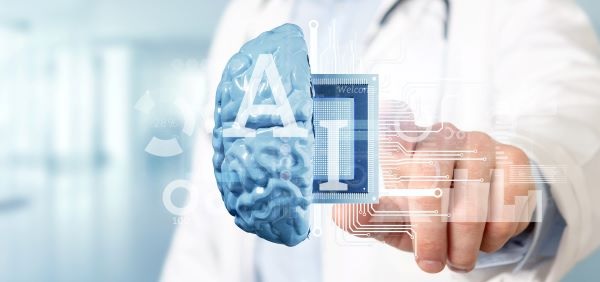The quest for valuable data has always been a cornerstone in healthcare research. As the healthcare industry continues to embrace advancements with digital age, data-driven insights are transforming how we understand diseases, develop treatments, and improve patient outcomes. The wealth of information in medical records can potentially drive groundbreaking research initiatives. In this blog post, we will explore the crucial role of data in healthcare research, focusing on the revolutionary impact of medical record retrieval solutions.
The Role of Data in Healthcare Research
Data lies at the heart of every medical breakthrough, from understanding the underlying causes of diseases to evaluating treatment efficacy. In-depth analysis of patient data enables researchers to identify trends, patterns, and risk factors that contribute to diseases’ progression and transmission. Moreover, data-driven research empowers healthcare professionals to make evidence-based decisions, improving patient care and outcomes. The importance of data in healthcare research can be understood through the following key aspects:
- Generating Evidence-Based Insights: Healthcare research heavily relies on data to create evidence-based insights. By collecting and analyzing data from various sources, including clinical trials, observational studies, electronic health records, medical imaging, and genetic testing, researchers can derive meaningful conclusions about the effectiveness of treatments, disease prevalence, risk factors, and patient outcomes.
- Identifying Trends and Patterns: Data plays a crucial role in identifying trends and patterns within patient populations. Through data analysis, researchers can uncover associations between certain risk factors and diseases, detect early warning signs, and identify groups of patients who may respond better to specific treatments. These findings can lead to targeted interventions and more personalized healthcare approaches.
- Facilitating Medical Breakthroughs: Data-driven research has led to numerous medical breakthroughs. From the discovery of new drugs and therapies to advancements in medical technology, data serves as the starting point for many innovative developments in healthcare. Researchers can uncover novel insights and avenues for medical progress by exploring large datasets and utilizing advanced analytical techniques.
- Enhancing Diagnostics and Prognostics: Data is essential for accurate and timely diagnosis and prognosis. Medical imaging, genetic data, and electronic health records provide critical information to healthcare professionals, enabling them to identify diseases, monitor progression, and predict patient outcomes. These insights are invaluable in determining appropriate treatment plans and improving patient care.
- Supporting Government Health Policy Decisions: Government organizations and policymakers heavily rely on data to formulate health policies and allocate resources effectively. Data on disease prevalence, healthcare utilization, and treatment outcomes help policymakers identify priority areas for intervention, design public health initiatives, and address healthcare disparities.
- Accelerating Drug Development and Clinical Trials: Data plays a pivotal role in drug development and the conduct of clinical trials. Preclinical data on drug safety and efficacy inform decisions about moving forward with human trials. During clinical trials, data collection and analysis are essential to assess treatment effectiveness and potential side effects, ensuring the safety and efficacy of new therapies before they are made available to the public.
- Fostering Continuous Improvement: The continuous collection and analysis of data in healthcare research leads to a cycle of improvement. Research findings may highlight areas for improvement in healthcare delivery, patient outcomes, or treatment protocols. As new data emerge, healthcare practices can be updated and refined, leading to better patient outcomes and increased efficiency in the healthcare system.
- Promoting Evidence-Based Medicine: Evidence-based medicine (EBM) relies on high-quality data from research studies. Healthcare practitioners can make educated judgments about patient care that will improve outcomes and reduce treatment variance by integrating the best available evidence with clinical knowledge and patient values.
Despite recognizing the importance of data, healthcare research often needs help accessing comprehensive and up-to-date patient information. Traditional paper-based medical records can be cumbersome to retrieve, with data scattered across different healthcare facilities and systems. Moreover, privacy concerns and stringent regulations have made data sharing complex, hindering research collaboration and innovation.
Enter medical record retrieval solutions, the game-changers in healthcare research. These solutions leverage cutting-edge technologies, such as artificial intelligence (AI) and machine learning, to efficiently and securely access patient data. By streamlining data retrieval processes, these solutions offer researchers a wealth of information at their fingertips, enabling them to focus on data analysis and interpretation.
Medical Record Retrieval Solutions
Medical record retrieval solutions have become a game-changer in healthcare research, harnessing the potential of data to drive groundbreaking discoveries. Retrieval solutions are not just for government and law policies – in this section, we will explore the transformative impact of these solutions on research by ensuring comprehensive and timely data access. Additionally, we will discuss how they enhance clinical trials, leverage big data analytics, and empower precision medicine.
Comprehensive and Timely Data Access
Medical record retrieval solutions provide a centralized and standardized platform for accessing patient data from various sources. This comprehensive approach lets researchers obtain a holistic view of patients’ medical histories, treatments, and outcomes. Furthermore, these solutions can retrieve data in real time, ensuring researchers can access the most current information.
Improving Clinical Trials and Observational Studies
Clinical trials and observational studies are vital components of medical research, but they heavily rely on accurate and reliable data. Medical record retrieval solutions simplify the process of identifying eligible participants, enabling researchers to recruit suitable candidates more efficiently. Additionally, by integrating diverse data sources, these solutions improve the validity of research findings.
Utilizing Big Data Analytics in Research
Medical record retrieval solutions are crucial in leveraging big data analytics for healthcare research. By amalgamating vast amounts of patient data, researchers can identify rare occurrences, spot emerging trends, and develop predictive disease diagnosis and prognosis models. Big data analytics has the potential to unlock groundbreaking insights that were previously hidden within the vast sea of medical information.
Enhancing Research Efficiency and Productivity
The manual retrieval of medical records is a time-consuming and labor-intensive process. Medical record retrieval solutions automate data collection, enabling researchers to focus on analyzing and interpreting data. This efficiency accelerates research timelines and enhances overall productivity, allowing researchers to explore more research questions in a shorter period.
Addressing Privacy and Ethical Considerations
Preserving patient privacy and adhering to ethical guidelines are paramount in regulatory compliance, as well as in healthcare research. Medical record retrieval solutions incorporate robust security measures to protect patient data. These solutions comply with strict data governance policies, ensuring researchers access only de-identified and anonymized data and safeguarding patients’ confidentiality.
Collaboration and Data Sharing
Research progress thrives on collaboration and data sharing. Medical record retrieval solutions facilitate seamless data exchange between researchers and institutions, fostering a collaborative research environment. By breaking down data silos, these solutions enable researchers to pool resources and expertise, accelerating the pace of medical advancements.
Empowering Precision Medicine and Personalized Treatments
Precision medicine tailors treatments to patients based on their genetic makeup, lifestyle, and environment. Medical record retrieval solutions supply researchers with a wealth of patient-specific data, supporting the development of personalized treatment plans. By understanding the intricate interplay of factors influencing a patient’s health, precision medicine holds the promise of improved therapeutic outcomes.
Final Thought
Harnessing the potential of data through innovative medical record retrieval solutions is paving the way for groundbreaking advancements in healthcare research. Record Retrieval Solutions are committed to leading this transformative journey. With strategic partnerships across the nation and decades of experience, their team of record retrieval specialists remains at the forefront of developing cutting-edge technologies. They ensure comprehensive and timely access to valuable patient data by staying up-to-date with legal requirements and regulations. Learn more about their services and how they can empower your research endeavors.



